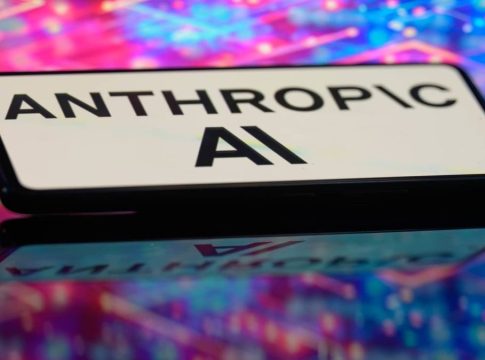AI and Copyright: Anthropic’s Legal Victory and Ongoing Challenges
In a landmark ruling, a federal judge has found that AI company Anthropic has not violated copyright laws in training its chatbot Claude on a vast array of written works. However, this does not mean the company is off the hook; it still faces potential litigation concerning its controversial sourcing practices.
Fair Use vs. Copyright Infringement
U.S. District Judge William Alsup issued the ruling, stating that Claude’s ability to generate new text from analyzing numerous copyrighted works constitutes "fair use" under U.S. copyright law. Alsup described this process as "quintessentially transformative," emphasizing that the AI’s goal is not to replicate existing texts but to create something original.
The decision came in response to a lawsuit filed by a trio of authors who accused Anthropic of “large-scale theft” for using pirated copies of their books to train Claude. Despite the favorable ruling regarding copyright infringement, Judge Alsup stressed that Anthropic could still face serious charges for its actions in acquiring these copyrighted works from so-called “shadow libraries” known for hosting pirated content.
The Shift in Strategy
During the course of the legal proceedings, it became evident that Anthropic had its own reservations about the legality of using pirated resources. Internal documents revealed these concerns, leading the company to later attempt to purchase legitimate copies of some of the books previously sourced from unauthorized sites. But Alsup clarified that this shift in approach would not shield Anthropic from liability for earlier infractions and could influence the extent of any imposed damages.
Implications for the AI Industry
This ruling not only impacts Anthropic but could also set a significant precedent for other players in the AI space, particularly competitors like OpenAI, the creator of ChatGPT, and Meta, the parent company of Facebook and Instagram. As AI technologies increasingly integrate vast amounts of data from existing texts, the legality of such methods is being scrutinized more than ever.
Anthropic, established by former leaders from OpenAI in 2021, has positioned itself as a responsible player in the generative AI landscape, boasting capabilities such as summarizing text and engaging users in natural conversations. However, the pending legal battle raises questions about the ethical implications of utilizing pirated content to develop sophisticated AI tools.
Looking Ahead
As the trial unfolds, it will be interesting to see how this case shapes the future of AI development and copyright law. The balance between innovation and respecting intellectual property is increasingly becoming a tightrope for tech companies. As they innovate, the need to source content legally is paramount, not just for compliance but also for fostering trust among users and creators alike.
This case illustrates the growing complexities surrounding AI technologies and their interaction with traditional legal frameworks, a dynamic that will likely continue to evolve as the industry matures. As we delve deeper into this AI-driven future, understanding these nuances will be crucial for creators, developers, and consumers alike.

Writes about personal finance, side hustles, gadgets, and tech innovation.
Bio: Priya specializes in making complex financial and tech topics easy to digest, with experience in fintech and consumer reviews.

